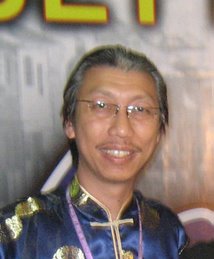The other day, a Lion approached me to say that even though he is a leader, he still has many things to learn about the different ways a Lions leader should be. Even though a successful businessman himself, he said that the way he runs his business and his staff is entirely different from the way our Lion leaders run our club's 'business' and our members. He didn't mean it in the negative way, and was in fact, awed with the differences and perspectives. As such, he wanted to learn more. I applaud such a positive attitude and hope to contribute a little to similar Lions' knowledge.
The basic fact is that no Lion is a paid employee that one can instruct or direct in a dictatorial manner. Secondly, most Lions are adults, usually successful in their personal endeavors. Thirdly, each Lion has his/her own reason(s) or motivation(s) to learn or to take action. As such, the ability to mobilize or educate (and eventually lead) a fellow Lion is a dedicated art in itself. I put it down to how much one cares for the other person and how, as a leader, one sets a good example for others to follow. As frequently said, respect is not bestowed, it must be earned. If a leader sets a bad example or do not care for his followers, the onus is on members whether to follow or not. In the Lions movement, each club is autonomous and a member can chose not to obey an outside leader (e.g. a Cabinet officer) and the leader cannot punish the member.
In the same manner, a Lion cannot and must not dictatorially instruct a Leo or Lioness just because the Lion is a paying member of Lions Clubs International, and the Leo/Lioness, being the member of an affiliate program, is not. Everyone is a human being and should be treated with dignity. Invite, not call; ask, not instruct; suggest, not direct; advise, not tell; counsel, not scold.
A legacy of our Lions clubs is the administrative procedures that make us different from other clubs, associations or societies. Take protocol as an example. During a Lions activity where protocol is required, we do things the way Lions have been doing for 90 years and throughout the world. We follow the same Order of Precedence regardless where in the world our club is located. Take our 'Project Account' as another example. I have not come across another organization where we clearly and publicly distinguish between our administrative funds and funds raised from the public.
As such, we should instill a spirit of learning and an environment that supports training for Lions, old and new. Have sensible leaders teach the right Lionistic ways of doing things. As modified from our Lions Purpose, "provide a forum for open discussion of all matters of Lionistic interest." I remember the Region 1 Lions Discussion Group back in the late 80s. Those interested would gather once a month for fellowship. Various topics were aired, views taken, suggestions accepted and passed to clubs as practical advice to follow.
Today in our District, there is hardly a good response to any learning activity. Organize a seminar and see how many turn up (without resorting to threats!). New Lions and leaders rely on their (oft erroneous or irrelevant) experience to carry out any assigned task or elected duties. Or they deem themselves 'knowledgeable' enough not to necessitate further learning.
And when learning and training (the core of any growing organization) stops, the decline and fall of the organization is not far beyond!
Thursday, June 7, 2007
Subscribe to:
Post Comments (Atom)





No comments:
Post a Comment